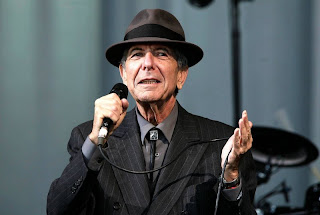This poem is from the book
Book of Longing.
When I was about fifteen
I followed a beautiful girl
into the Communist Party of Canada.
There were secret meetings
and you got yelled at
if you were a minute late.
We studied the
McCarran Act
passed by the stooges in Washington,
and the
Padlock Law
passed by their lackeys in Quebec,
and they said nasty shit
about my family
and how we got our money.
They wanted to overthrow
the country that I loved
(and served, as a
Sea Scout).
And even the good people
who wanted to change things,
they hated them too
and called them social fascists.
They had plans for criminals
like my uncles and aunties
and they even had plans
for my poor little mother
who had slipped out of Lithuania
with two frozen apples
and a bandanna full of monopoly money.
They never let me get near the girl
and the girl never let me get near the girl.
She became more and more beautiful
until she married a lawyer
and became a social fascist herself
and very likely a criminal too.
But I admired the Communists
for their pig-headed devotion
to something absolutely wrong.
It was years before I found something comparable for myself:
I joined a tiny band of steel-jawed zealots
who considered themselves
the Marines of the spiritual world. It's just a matter of time:
we'll be landing this raft
on the Other Shore,
we'll be taking that beach
on the Other Shore.








